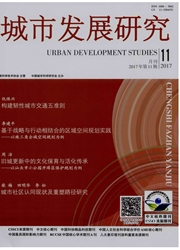

 中文摘要:
中文摘要:
20世纪末期以来,新区域主义理论逐渐成为全球化背景下跨域合作治理研究的显学。新区域主义理论关注权力与资源的依赖关系、行动规则的构建与网络协作的达成,主张面向空间、功能和部门等纬度构建政府、企业、社会组织、公民个人等多元主体间的协调机制。从新区域主义的理论视角审视京津冀区域合作治理的现实可以看出,目前我国京津冀区域的治理模式仍处于构建阶段,面临着缺乏区域认同、协调方向单一、社会力量参与有限、合作机制不健全等问题,需要注重顶层设计,从国家首都地区战略的高度构建京津冀区域协同治理机制,打造决策——协调——执行相衔接的综合治理体系,并加强法制保障建设。
 英文摘要:
英文摘要:
Since the end of the 20 th century,new regionalism theory has imposing significant impact on governance across boundaries research under the background of globalization. New regionalism theory pays close attention to the dependencies between power and resource,construction of action rules and network collaboration process,and advocates coordination mechanism facing dimensions of space,functions and departments among multiple subjects of governments,enterprises,social organizations and individual citizens. In perspective of new regionalism theory,the governance model of Beijing-Tianjin-Hebei metropolitan is still in the primary stage and is confronted with such problems as lack of regional identity,single coordinated direction,limited social forces and imperfect cooperation mechanism. It should pay attention to the top-level design and construct Beijing-Tianjin-Hebei metropolitan governance mechanism,build the corresponding comprehensive control system of decision-making,coordination and execution,strengthen construction of legal system safeguard from the height of the National Capital Region Strategy.
 同期刊论文项目
同期刊论文项目
 同项目期刊论文
同项目期刊论文
 期刊信息
期刊信息
